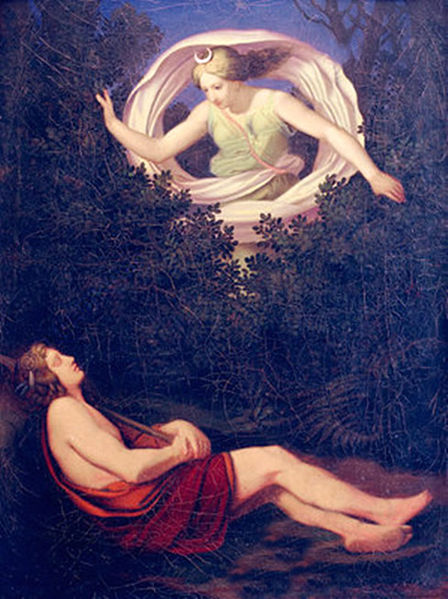 With this title in mind, I began researching the topic looking for trends as well as doing a little soul-searching since I am a romantic at heart and write romance. I freely admit I am in love with love. In book, movie, poem or song, old or new, happy or tragic, requited or not. I love love. And this topic could not have been more timely on a personal level.
With this title in mind, I began researching the topic looking for trends as well as doing a little soul-searching since I am a romantic at heart and write romance. I freely admit I am in love with love. In book, movie, poem or song, old or new, happy or tragic, requited or not. I love love. And this topic could not have been more timely on a personal level.
Over the weekend I had a discussion with my sweetheart about the word “love’ and while I don’t want to bore you with my life, I do want to explain the filter through which I am currently perceiving this word. We love our pets, our cars, our friends, and the steak we had for lunch. How can one word cover so many things and hold its meaning? And how does that impact Great Love? The higher love of John Donne’s A Valediction Forbidding Mourning? The enduring love of Shakespeare’s Sonnets? Great Love covers more than common feelings and an over-used word.
When I am told that what someone feels for me is so much more meaningful than what the common word “love’ can possibly convey, I feel Greatly Loved in the capital G, capital L, Great Love kind of way. That one incredible human being refuses to tell me he loves me because it does disservice to the depth of his emotions regarding me, well… I can tell you I have never been told anything so romantic or heartfelt no matter how contradictory it may sound.
Yet with all the grand ideas of love and the ideal of Great Love, there is a trend I’m seeing in some of the great legends that bothers me. I am practical, intelligent and have a firm belief that stupidity is its own reward. So, as I looked at lists of the “great’ romances (a couple sites I perused – Best, 10 Greatest, Top 20, Top 100) I became a little frustrated with how much rampant stupidity was involved. Perhaps a harsh term, but we’re going to run with it for now. Before you get your big girl or boy panties in a twist, let me say I love most of these stories – rampantly stupid or not. It was just a trend I saw. I will explain. Stay with me.
First, why do these stories endure? I think it’s because they lead us to a belief in something greater than ourselves. Something selfless and more meaningful than our happiness, than physically being together, than even life itself occasionally. Something transcendental and eternal. So, while I love (there’s that word again) these stories, I would like to add a counter-balance thought to some of them.
 We’ll alternate between the happy endings and the not-so-happy endings.
We’ll alternate between the happy endings and the not-so-happy endings.
♥ Odysseus and Penelope – Time and patience pay off. Yay. Great Love has no limits. Storms and travels and suitors abound, but Great Love stays the course.
Romeo and Juliet – Happy for the willingness to overcome all obstacles including family and friends’ disapproval to be together. Sad about poor communication. Warning: Lots of bad communicating ahead and usually in the ones ending tragically. Maybe a lesson to be learned? Communication = Good.
♥ Jane Eyre and Rochester – Disparities in social standing, marital status, money and family situations cannot conquer Great Love. Neither can physical impediments. With time and clarity on what’s important, Great Love will triumph and our lovers will live happily ever after. I love that.
Antony and Cleopatra – Stormy relations involving love, power and politics. Something’s got to give and can you really separate them? I don’t know.
♥ Marie and Pierre Curie – Smarts and dedication combined with Great Love can lead to scientific break-throughs and a life well-lived in honor of the Great Love you shared. Death of one does not have to mean an end to that Great Love.
Lancelot and Guinevere – Again, we have power and politics involved (always messy), and although they didn’t live together at the end, they both lived. As romantic as death seems in the abstract, in reality, I don’t think it’s much of a solution. And really, relationships founded on cheating on current spouses rarely end well. There’s a lot of this too.
♥ Queen Victoria and Prince Albert – Another Great Love that brought forth greatness in both people when together and the survivor when one died. Sure, Victoria grieved all the rest of her very long life for Albert, but she was a great monarch and paid tribute to her Great Love by continuing on in his memory.
Tristan and Isolde – Kings of any type get the short end of the Great Love stick as their wives keep falling for other guys. I’m gonna say that the risk of jeopardizing a solid relationship as Queen is a pretty big sacrifice to make in the name of love, not to mention it usually also runs the chance of being killed or stuck in a nunnery, you know… for cheating on the king. For the guys too – you risk your life when you fall for the King’s woman. Sacrifice + Risk = Great Love. I guess.
♥ The Dashwood Sisters – Sense and Sensability… Let’s start with Marianne and Willoughby – stupid. They may have been in love, but it was a wimpy love with no backbone. All surface and no substance. Col. Brandon on the other hand, his love is substantial. It waits and is understanding of youth and immaturity. Once Marianne pulls her head out of her ***, this is a Great Love. Elinor and Edward’s relationship certainly tests friendship and honor and generosity in the face of utter heartache. These two have a Great Love and a happy ending they’ve earned the hard way.
Scarlett and Rhett – They were a hot mess. But they kept trying and maybe that’s the enduring quality here. Or maybe it’s that despite being a calculating, manipulative, shallow, difficult person, there is someone still willing to love you. No matter what. And if he leaves… well, he’s come back before and tomorrow is always another day. I’m not going to go into the whole Ashley/Melanie aspects. Triangles and trapezoids and daisy-chains of unreciprocated non-sense are not Great Love. I do think Ashley and Melanie had a Great Love that is more honest and worth noting than Scarlett and Rhett’s, but conflict is at the heart of story-telling, so…
♥ Rick and Ilsa – Casablanca. No, they didn’t end up together, but their sacrifice of Great Love was for the greater good and I can respect that. Their acts of selflessness mean they can sleep at night knowing they did what was right and not convenient. Rarely is Great Love easy.
Pyramus and Thisbe – Wow for misperception and jumping to wrong conclusions a smidge too soon. This is one of those “stupidity is its own reward’ stories for me. I don’t see the romance in this one unless you want to say that life is meaningless without your Great Love. Whatever.
♥ Nickie and Terry – An Affair to Remember. When all hope is gone, you discover you were wrong and love may not be waiting for you atop a building, but it is pretending nothing is wrong when it wants to run to you and can’t. If you don’t get it… watch the movie. I cry every time.
Cathy and Heathcliff – So, Scarlett and Rhett had nothing on Cathy and Heathcliff as hot messes went. They are both completely flawed and selfish. Neither gives two hoots about anyone but themselves and their Great Love. That could be the enduring trait – Great Love at all costs. Including other partners, siblings, parents, children and let’s throw in some animals and servants for good measure. Why not? They completely destroyed themselves and everyone around them. And not that the other people are blameless, they didn’t have to stick around for it. Everybody involved seemed to think love was a weapon of mass destruction. For the record, I still love this one… just pointing out some alternate thoughts.
♥ Charlie and Rose – The African Queen. Great Love is not always handsome or beautiful. It is not always romantic in the traditional sense. Sometimes, it’s a lonely alcoholic running a crappy boat up and down a river building something with a high-handed sanctimonious spinster. Building something out of strength and respect and courage. Hell yeah, sometimes Great Love endures because it fought to survive.
There are many reasons these stories endure, many reasons we want to cling to the idea of Great Love. Maybe I touched on some, maybe not. I’m open to discussion. Anyone got some other Great Love couples they want to mention and why? I’d love to hear about them.


